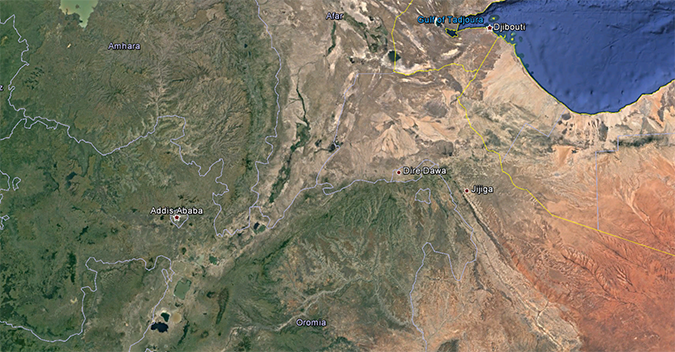‘Water can be both a blessing and a curse: at any location there can be too much or too little of it at different times,’ says the scene-setter for this year’s World Water Week theme ‘Water for sustainable growth’.
In the Awash basin in Ethiopia, impacts of hydrological variability on the economy are severe, according to a new report published by Vivid Economics for the Global Green Growth Institute, with input from our research team. The study shows that future variability due to climate change could lead to swings in basin Gross Domestic Product (GDP) of 5-20% while a prolonged drought would reduce economic production by at least 20%.
Quantifying economic impacts
The Awash basin is home to many economic and livelihood activities – such as agriculture, manufacturing and pastoralism – which are vulnerable to changes in rainfall and water-related extremes such as floods and drought. While the basin is rich in water resources, these are unevenly distributed across the basin and variable. The recent drought in Ethiopia shows how vulnerable the region is, but studies quantifying the impact of extreme events on economic and poverty outcomes are lacking.
This study takes a first step towards understanding how water- and climate-related factors influence the economy at the river basin scale. It estimates the direct impacts of rainfall and extreme events on crop production – the mainstay of the basin’s economy and the biggest water user. The results show that output is highly sensitive to flooding and drought, the overall level of rainfall, as well as the timing of rains and their distribution across different areas of the basin. Economic losses are even greater when taking into account the knock-on effects on other sectors in the economy.
Improving water management
The authors warn that the economic impacts reported in the study – though large – are conservative and do not account for future pressures on water resources due to rapid economic and population growth projected for the region. Given the importance of the Awash’s economy, which accounts for around 30% of national GDP, it is critical that water resource management in the basin is prioritised in Ethiopia’s development plans.
The Awash Basin Authority is already taking action to improve data collection, forecast supply-demand balances, and develop tariff and permitting schemes for water abstraction and wastewater discharges. However, policy-makers recognise that more can be done to improve the way water is conserved and allocated between users to protect the interests of all stakeholders.
Poverty matters
Of course an analysis of total GDP is only one part of the picture. REACH is interested in how water management in the basin affects poor women, men and children. And if water security investments are made to support economic development, will these groups also experience improved water security?
Our Water Security Observatory in the Awash basin will study how water availability affects economic and livelihood opportunities for the poor. This understanding will inform interventions to support economic growth while protecting the interests of the most vulnerable.
The report and its findings will be presented by Dr Katrina Charles at the World Water Week session Water as a driver for sustainable growth in Stockholm on 29 August 2016.

